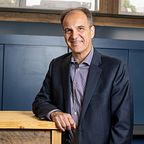Notes on “Makerspaces in Libraries” Session at OMMIC 2017
Speakers: Jasmine Bouchard, Head, Research and Learning, Arts and Science Library, University of Ottawa; Sarah Simpkin, Digital Scholarship Librarian, University of Ottawa
2017 Ontario Makers and Mentors Innovation Conference
Highlights
Speakers introduced libraries in the context of “third places” providing social surroundings separate from the two usual social environments of home (“first place”) and the workplace (“second place”); described emerging recognition as libraries as urban spaces to share experiences, community gatherings, collaborative learning, and much more (workshops,digital converson services, technology demonstration spaces, etc)
Cited examples of Canadian libraries introducing innovative facilities and programming: Halifax Central Library, Edmonton Public Library (EPL Makerspace) and Toronto Public Library (Digital Innovation Hubs) as leaders in this movement.
Some libraries are experimenting as sites where the public learn to interact with technologies (and tools); libraries have a historical tradition of providing the public access to tools. There is a growing acceptance of libraries shifting from a place where content is accessed and “consumed” to a place where content can be produced. In this perspective, makerspaces are extensions of libraries as places where both content/knowledge is created and shared.
Jasmine noted that this “shift” has been enabled by two significant drivers 1) the increased adoption of digital tools and technologies by libraries; and 2) the democratization of knowledge (i.e., learning can take many forms and take place through many more diverse activities than in the past).
Alternative approaches to libraries integrating makerspaces directly into their physical space are co-located makerspaces and library facilities such as the Ryerson University Digital Media Experience Lab (Student Learning Centre) adjacent? to the university’s well-known enterprise incubator DMZ. [Note: the Ryerson Digital Media Experience Lab was the benefactor of a $105,000 donation from local real estate business person Issac Olowalife Jr. in 2015.
Frequent references were made to the leadership of North Carolina State University in experimenting with innovative spaces/programming in connection with in-house makerspace(s). A crucial insight about the NCSU approach is the value they place on continuous experiments and pilots in programming before committing to investing in physical infrastructure/equipment.
Benefits of co-locating/integrating makerspaces with/in libraries include: universal access, greater likelihood of sustainability, (other …)
Other miscellaneous notes/resources:
- Innovator-in-Residence at Toronto Public Library
- Twine — an open-source tool for telling interactive, nonlinear stories
- Innovative community outreach such as the OPL BiblioBike (Ottawa Public Library)
- Capital City Records at the Edmonton Public Library
- Digital Pedagogy — A Guide for Librarians, Faculty, and Students
- Digital Pedagogy in the Humanities
- The Learning Centre at the University of Ottawa (opening in 2018)
- Libraries & Maker Culture: A Resource Guide
- Five Trends in Library Makerspaces
